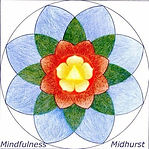top of page

WHAT IS MINDFULNESS?

Mindfulness is to be attentive to the present moment, with curiosity, openness and non-judgment. It means to be aware of what we are doing while we are doing it, rather than being dragged away in the past or the future, or driven by our habitual patterns, or caught up in thoughts and stories. It is the capacity to be, to act, to speak, to listen, to walk and undergo all of our daily activities with the constant presence of mind or
clear awareness. To be mindful enables one to experience life fully, to respond to situations with choice rather than reacting automatically.
Mindfulness meditation has been practised in many spiritual traditions for thousands of years and particularly in Buddhism where the core teaching of the Buddha is called ‘The four Noble Truths: (The truth of suffering, the cause of suffering, the cessation of suffering and the path leading to the cessation of suffering). The Buddhist understanding of the human mind and some of the skills used to help one alleviate suffering have been used to create contemporary programmes of mindfulness practice, for the people of the West. They have been skilfully adapted to the mainstream, to our busy lives and culture. Mindfulness practice is non-religious, anyone can practice it. The benefits of Mindfulness practice are numerous; they are proven to help with anxiety, depression, physical and mental pain, health, performance as well as general life challenges.
“Mindfulness means paying attention in a particular way; on purpose, in the present moment and non-judgmentally”. Jon Kabat-Zinn, Professor of Medicine emeritus, University of Massachusetts Medical School.
RECENT POSTS
"Mindfulness is to be attentive to the present moment, with curiosity, openness and non-judgment. It means to be aware of what we are doing while we are doing it, rather than being dragged away in the past or the future, or driven by our habitual patterns, or caught up in thoughts and stories."
bottom of page





